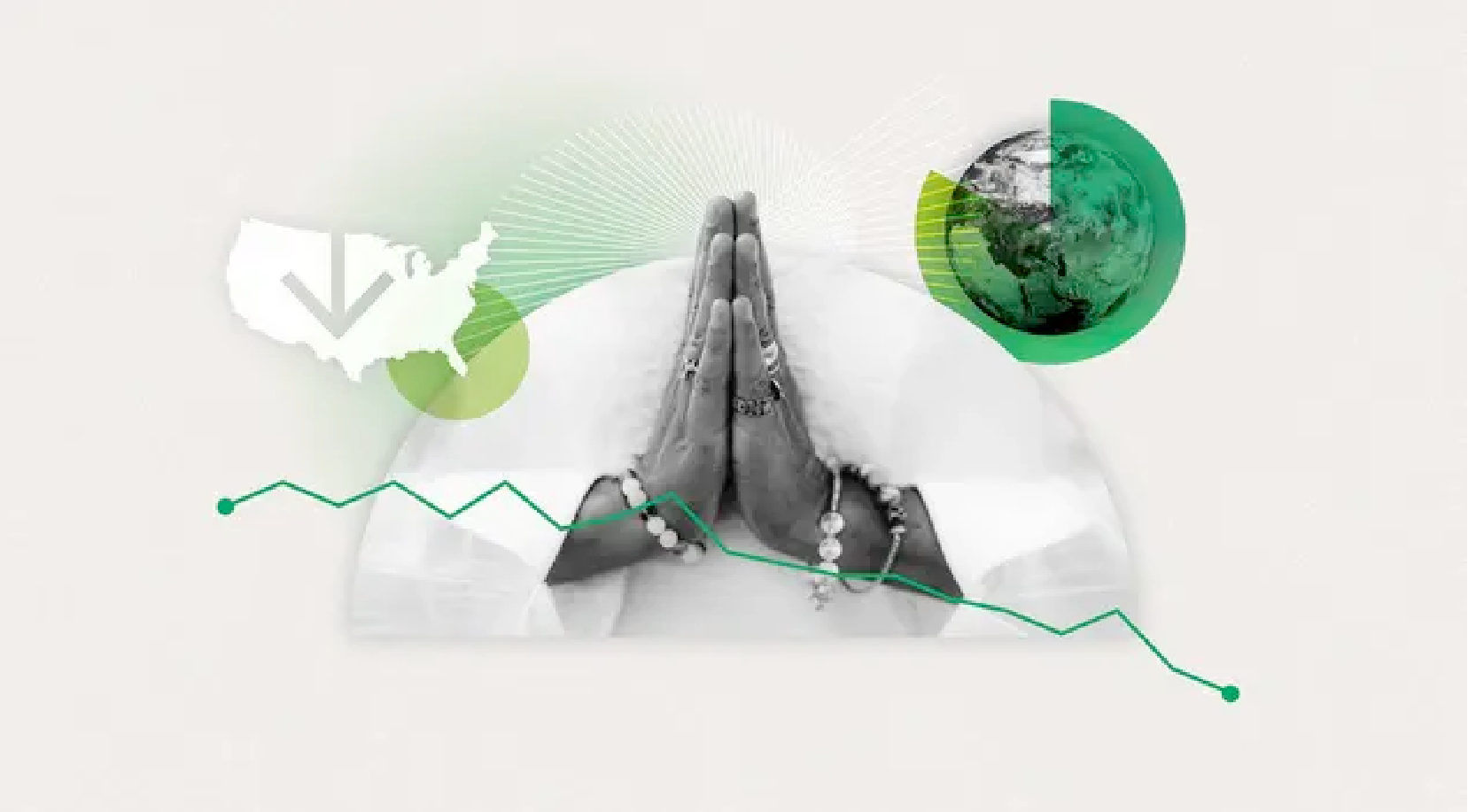Mission
Christian identification remains moderately strong Photo: Gallup
According to Gallup’s latest findings, fewer than half of Americans—49 percent—say religion remains important to their daily lives. Ten years ago, that figure stood at 66 percent
(ZENIT News / Washington, 11.17.2025).- For years, analysts spoke of an American exception: a nation whose economic modernity, cultural pluralism, and relentless pace had not eroded the central place of religion in everyday life. That assumption is now harder to defend. A new Gallup survey signals one of the sharpest contractions of religiosity recorded in any advanced democracy, positioning the United States somewhere it has not been before—between a spiritual past that no longer fully holds and a secular future that has not yet clearly arrived.
According to Gallup’s latest findings, fewer than half of Americans—49 percent—say religion remains important to their daily lives. Ten years ago, that figure stood at 66 percent. The numerical drop is striking enough, but what troubles researchers is the pattern beneath it. The United States no longer neatly fits any of Gallup’s long-used categories: not the nations where Christian identity fuels high religious engagement, nor the heavily Muslim countries where religiosity shapes public and private life, nor the secular societies of northern Europe where cultural Christianity survives even as practice fades, nor the increasingly non-religious states where belief and belonging have both receded.
Instead, the United States occupies a liminal space. Christian identification remains moderately strong—comparable to parts of western Europe such as Britain, Germany, or Denmark—but everyday religious practice is sliding toward the middle of the global spectrum. At the same time, the importance Americans attach to religion remains higher than in most of Europe, aligning more closely with Catholic-majority societies such as Italy, Poland, Argentina, or Ireland. Yet unlike those countries, the U.S. sees far fewer people identifying as Christian. The numbers no longer move in the directions they once did.
The shift is part of a broader trend documented over the last decade. Pew Research Center reports that nearly 29 percent of Americans now describe themselves as religiously unaffiliated—a record figure. Axios recently estimated that as many as fifteen thousand churches could close by the end of 2025, an institutional consequence of shrinking attendance, aging memberships, and financial pressure. The language of “revival,” popular in some quarters of American Christianity, sounds increasingly like aspiration rather than description.
But the picture is not uniform. While indicators of religiosity and church belonging decline, public attitudes on moral and social issues associated with religion do not always follow a predictable ideological path. Surveys by Gallup, Pew, Marist, and others show a gradual increase in support for abortion rights over the past decade, although voters who oppose abortion still report higher political motivation. Yet on questions related to gender identity—a topic often portrayed as a proxy for broader cultural values—public sentiment appears far more resistant to change. Majorities consistently oppose taxpayer funding of gender-transition procedures, support restrictions on medical interventions for minors, and reject the idea that biological males should compete in women’s sports. Even among Democratic voters, Gallup finds limited support for policies that allow gender identity to override sex in competitive athletics. A majority of Americans now describe gender-transition attempts as morally problematic.
This divergence—liberalization on some issues, retrenchment on others—complicates the narrative of a nation simply drifting in a secular direction. What emerges instead is a society redefining the relationship between personal spirituality, institutional religion, and moral conviction.
A parallel analysis published in Italy highlights the same phenomenon from another angle: the United States is moving closer to European patterns, where religious identity persists even as practice declines. But the American version is more fluid. Many who distance themselves from organized religion still express a desire for meaning, ritual, or transcendence. Their spiritual search, however, no longer maps neatly onto traditional denominational lines. In this sense, the U.S. trajectory mirrors shifts seen in Italy, where religiosity fell by more than twenty points over a decade, yet Catholicism remains a strong cultural framework. The American difference lies in the rapid growth of the unaffiliated, whose numbers now form a demographic reality that churches can no longer treat as temporary estrangement.
What the data describe is not the disappearance of religion but its transformation. Faith is becoming less institutional and more experiential; less tied to weekly gatherings, more shaped by personal interpretation. Churches, synagogues, and mosques now face a pastoral landscape where the desire for spirituality does not automatically lead to membership or even belief. Institutions accustomed to being cultural anchors are learning to speak to a population that demands spirituality without structure, identity without affiliation, morality without doctrinal frameworks.
The quiet revolution underway in American religion is not simply a decline story. It is a reconfiguration. The question that remains is whether the country’s religious institutions can adjust to a reality in which their historic role is no longer taken for granted—and whether a society long shaped by faith can navigate its moral debates without the common language that churches once supplied.
Thank you for reading our content. If you would like to receive ZENIT’s daily e-mail news, you can subscribe for free through this link.
View all articles
If you liked this article, support ZENIT now with a donation
To celebrate the World Day of the Poor and its Jubilee, the Congregation of the Mission organized the Holy Father’s lunch in the Vatican with people living in poverty.
Pope’s address to representatives of the film industry during a meeting at the Vatican
